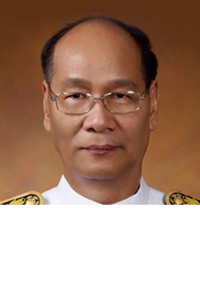
A functional parliament is a strong foundation of a participatory democracy. Globally, the governing bodies of the socio-economically and politically advanced countries operate under some form of participatory democracy.
In comparison, the parliamentary system in Thailand, which has been guided by constitutions written to benefit the elites, is still operating under a nominal representative democracy, effectively representing only the few.
The 1997 constitution was the one and only constitution, among the 20 since 1932, that was drafted by the people and was known as the "people's constitution". This constitution promulgated the principle of a democracy that functions in the best interests of the people. However, that constitution was short-lived, lasting only until 2006, when yet another military junta abolished it and added a new constitution, followed by another junta and another constitution in 2014, to put a damper on the hopes of the citizens for participatory democracy.
Many still accept that the Thai political system is a form of representative democracy, while others have cast doubt on the legitimacy of the government. Even though Thailand held its latest general election in March 2019, allowing the citizens to choose their parliamentary representatives from several political parties and form a coalition government, the question remains, "Who does the government really represent?" Many citizens do not see the current government that resulted from the last election as being accountable to the citizens. They view the government as focusing on the interests of the rich, while the majority who need help from the government are left on their own or dependent on some subsistence welfare scheme, preventing them from building self-reliance.
In addition, there are complaints that once the coalition government was formed, some of the parliamentarians did not honour the promises that they had given to the citizens during the campaign.
As the Thai political system does not function in the best interests of all citizens, it suggests that we need real political reform and not lip service as was given in 2013 by the PDRC, with their slogan of "Reform Before Election", which paved the way for the coup. As was expected by many, the reform never happened. While it is doubtful whether genuine political reform will ever materialise in Thailand, at a minimum, the citizens should be empowered to provide direct input to the representatives for the political decision-making processes.
The foundation of participatory democracy involves more grassroots citizen participation in decision making. It also strives to create inclusive and equitable opportunities for all citizens to make meaningful contributions to policy formulation.
For participatory democracy to attain its greatest benefit to the citizens, we must broaden the range of people who can participate in political decision making. Much information must be gathered for both the strategies to recruit contributors to the practice of participatory democracy and for the overall decision-making process to succeed.
Digital technology can be employed to assist in the process of participatory democracy. For example, e-democracy has been extensively and successfully applied in Sweden and Estonia. If implemented properly in Thailand, it can increase the scale of participation from small but lively and effective participation groups within areas under the jurisdiction of local governments into national networks of citizens who can be directly involved in the legislative or law-making processes. It is in this form of participatory democracy that allows citizens to express their views and opinions that can be heard from the local to the national levels.
Capitalising on existing technology, such as community and national forums and web sites for each representative and senator to gain direct input from the citizens and help those constituents who are in need of assistance. This is common practice in many Western countries such as the US, UK, and others. Then the issue is to get the representatives to use this information they received for the benefit of the citizens. The members of parliament will still debate, analyse, scrutinise, and vote to enact legislation that will benefit the greatest number of citizens, including the neediest. The legal expertise, experience, complexity of jurisdiction, and oratory skills of the members of parliament are irreplaceable by machine or artificial intelligence. In my opinion, the members of parliament are still needed, but will serve as the proponents of the laws introduced with significant input of the people.
With the political will of the parliamentarians, participatory democracy can help increase accountability, transparency, and responsiveness of public officials. In public administration, accountability is greatest when transparency is observed and put into practice as a means of holding public officials accountable and to fight corruption. When operating under the aegis of the parliament, which has stipulated that the meetings of governments at all levels are open to the press and the public and their budgets may be reviewed by anyone, it is seen as a transparent process and a precursor for accountability and responsiveness.
As participatory democracy has positive impacts on autonomy of local governments, empowerment of the people, civic participation, transparency, accountability, and responsiveness, it is imperative that the parliamentarians sponsor a new charter that will effectively move Thailand forward.
Currently, parties are discussing amendments to the current charter to gain more house seats in the next general election. A word of caution, particularly for the opposition: do not waste limited time and resources in a futile effort of revise Section 272 to remove the senators to take part in selecting the premier. It is advisable to sponsor a draft, guided by the principles of participatory democracy, to empower the citizens to participate in political decisions. More than likely, due largely to the influence of the elites, that draft will be defeated. They can still capitalise on the inclusive proposals in the draft as a way to gain more votes from the increasing number of voters who are displeased with old-style politics.
